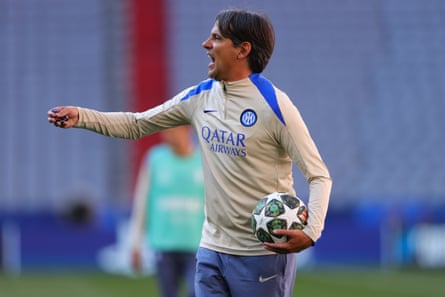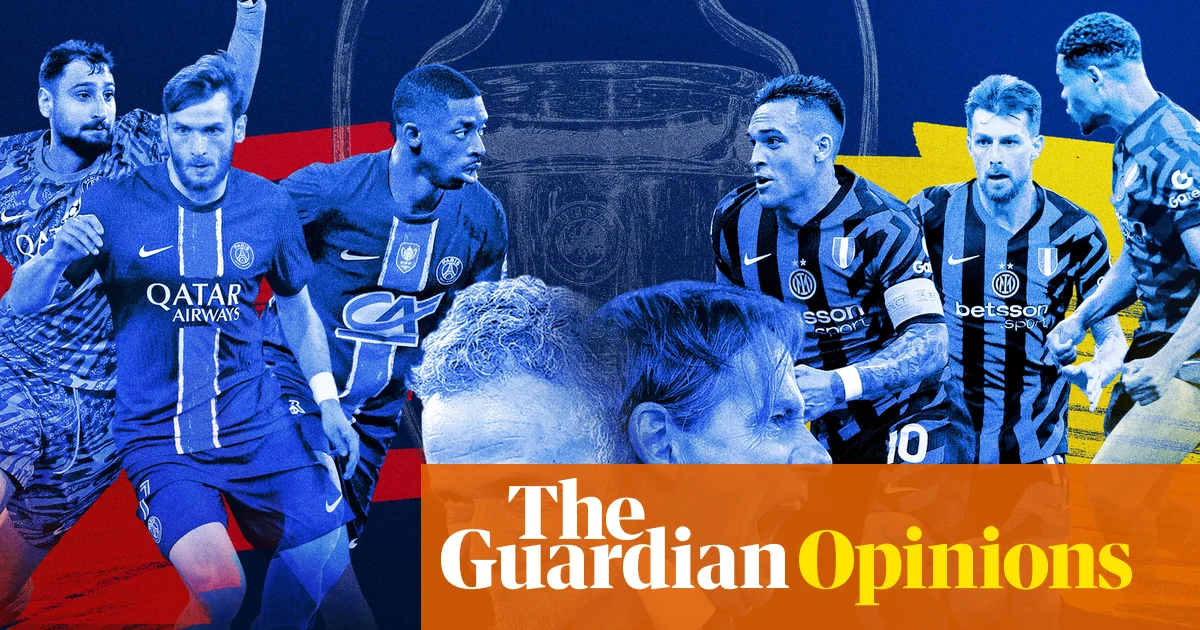In 2021, Oaktree Capital quietly rebranded its “Distressed Debt” division as the “Opportunistic Credit” platform. For decades the LA-based investment fund had specialised in picking up what is known in the trade as distressed assets, a strategy it described as looking for “good companies with bad balance sheets”.
So let’s say your company is screwed. You’re deep in debt, severely short of cash, perhaps even at risk of bankruptcy or default. In sweep Oaktree. They have a mosey around, shake down some creditors, restructure your cost base, perhaps offer you a high‑interest loan to stop the bleeding. Once they’ve got you battle-lean they find you a buyer, you sell up, and they take a fat cut. Four years ago, as they cast an eye over the Covid-emaciated carcass of Inter, this was exactly the strategy they had in mind.
Oaktree never intended to own Inter. Their objective was to sustain the ownership of Chinese conglomerate Suning for as long it took to help them sell up, and then cash in. But as the debts accumulated and successive restructurings failed, potential buyers took flight. When Suning defaulted on a debt repayment last May, Oaktree took over the club pretty much by default. And over the course of 12 months you might say what began as a distressed debt has unexpectedly turned into an opportunistic credit.
Saturday evening’s Champions League final is a jarring and stirring clash of styles in so many ways. The relentless attack of Paris Saint-Germain and the relentless defence of Inter. One team built on the freehand wizardry of youth and one built on the weathered edifice of experience. Flying wingers against flying wing-backs, two strikers against none. But perhaps the biggest philosophical difference is between two radically different models of a football club itself: who it serves, what it can be, what constitutes success, and how to get there.
At which point we feel duty-bound to point out just how thrilling and charismatic this young PSG team are, how humble and local, how refreshingly unlike their predecessors. But of course this is still a team assembled at eyewatering expense. Désiré Doué, that lovable homegrown winger: yeah, he cost £45m. Bradley Barcola, he was £40m. Then there was the £60m casually dropped on Khvicha Kvaratskhelia in the January window, an unimaginable expense for most Champions League sides, let alone PSG’s domestic rivals.

Desiré Doué cost PSG £45m. Photograph: Franco Arland/Getty Images
Obviously this has always been the calculation in Paris: that immense wealth, plus royalty, multiplied by immaculate PR, equals effortless class. Move quickly, break things, make new things. In a way, the pivot-to-likable is simply another example of Parisian/Qatari soft power, the ability to reshape a narrative, another perfectly executed branding exercise by a state where women can still lose their right to financial support if they refuse to have sex with their husband “without a legitimate reason”.
And of course PSG can afford all this, can bin off failing players, can wear the big losses, because their mission is far bigger than one Champions League, one Deloitte money list, bigger even than football. In a way Qatari investment has been the ultimate 4D chess game: a complex apparatus of sportswashing and political favour and designer leisurewear, erected over more than a decade and whose success can only ever partly be measured by Marquinhos’s ability to head away corners.
The American investor model, by contrast, measures value in much starker terms. Here the profligacy of PSG is met by the distressed austerity of Inter, an empire not so much being built as nibbled away. Prized assets like Achraf Hakimi and André Onana must be sold to make way for older, budget replacements. Of course there can be no long-term vision here with your ageing squad and council-owned stadium and depressed commercial value. Qatar Airways pay PSG £60m a year for shirt sponsorship; last year a similar offer to Inter was worth around a quarter of that.
Howard Marks, the co-founder of Oaktree, often explains investing strategies using sporting analogies. “If we avoid the losers, the winners will take care of themselves,” goes one of his maxims. As a result of their improbable, hugely impressive run to the Champions League final, Inter have already swollen in value: over £1bn, according to some estimates. They are no longer a financial shambles. Whatever happens from here, Oaktree’s initial investment has paid off handsomely.

Simone Inzaghi has worked with a limited budget at Inter. Photograph: James Gill/Danehouse/Getty Images
So, while fans scream for investment in the squad, a new stadium, a transfer war chest to keep Simone Inzaghi at the club, for the dispassionate investor the temptation to sit on this gently appreciating asset, to wait it out, must be immense. No Champions League, no scudetto, no problem: just a secure annual yield, pure viability, pure opportunistic credit.
Inter probably go into this game as the favoured choice of most neutrals and purists. But on a sporting level, is either of these models really more romantic than the other? Not really. In the same way that Ousmane Dembélé and Warren Zaïre-Emery are not consciously playing for a state investment fund, Oaktree are not really doing it for the Curva Nord, for the ghosts of Herrera and Facchetti, for the hallowed reputation of Italian football.
Until clubs are genuinely owned by their people, these are the sorts of compromises we will continue to endure. A vehicle for geopolitics against a vehicle for pure profit; vulture despotism against cold vulture capitalism. As it ever was in modern football: choose your fighter.
